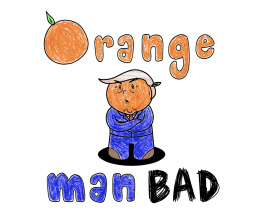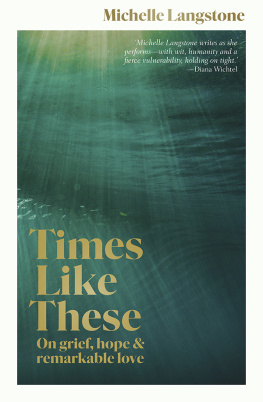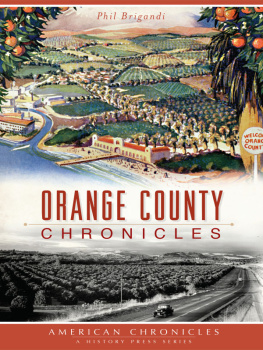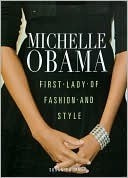Michelle Orange - This Is Running for Your Life: Essays
Here you can read online Michelle Orange - This Is Running for Your Life: Essays full text of the book (entire story) in english for free. Download pdf and epub, get meaning, cover and reviews about this ebook. year: 2013, publisher: FarrarStraus, genre: Romance novel. Description of the work, (preface) as well as reviews are available. Best literature library LitArk.com created for fans of good reading and offers a wide selection of genres:
Romance novel
Science fiction
Adventure
Detective
Science
History
Home and family
Prose
Art
Politics
Computer
Non-fiction
Religion
Business
Children
Humor
Choose a favorite category and find really read worthwhile books. Enjoy immersion in the world of imagination, feel the emotions of the characters or learn something new for yourself, make an fascinating discovery.

- Book:This Is Running for Your Life: Essays
- Author:
- Publisher:FarrarStraus
- Genre:
- Year:2013
- Rating:3 / 5
- Favourites:Add to favourites
- Your mark:
- 60
- 1
- 2
- 3
- 4
- 5
This Is Running for Your Life: Essays: summary, description and annotation
We offer to read an annotation, description, summary or preface (depends on what the author of the book "This Is Running for Your Life: Essays" wrote himself). If you haven't found the necessary information about the book — write in the comments, we will try to find it.
This Is Running for Your Life: Essays — read online for free the complete book (whole text) full work
Below is the text of the book, divided by pages. System saving the place of the last page read, allows you to conveniently read the book "This Is Running for Your Life: Essays" online for free, without having to search again every time where you left off. Put a bookmark, and you can go to the page where you finished reading at any time.
Font size:
Interval:
Bookmark:
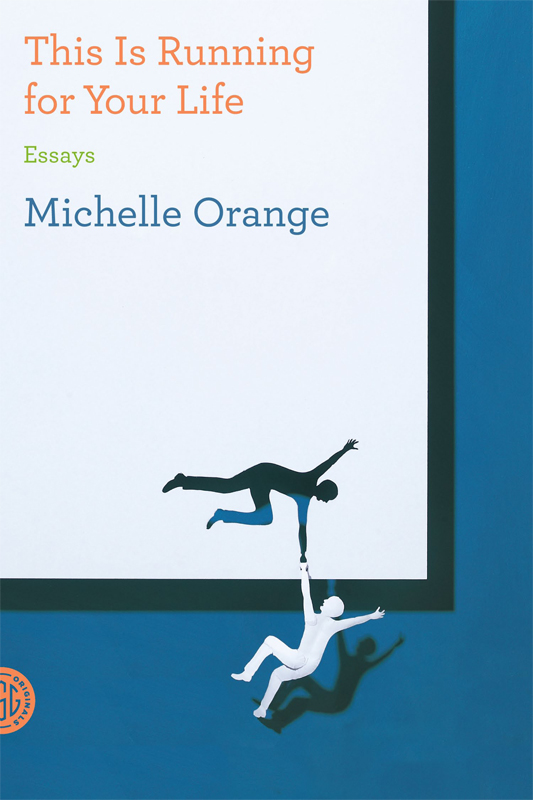

The author and publisher have provided this e-book to you for your personal use only. You may not make this e-book publicly available in any way. Copyright infringement is against the law. If you believe the copy of this e-book you are reading infringes on the authors copyright, please notify the publisher at: us.macmillanusa.com/piracy.
For my parents, and their parents
Contents
The Uses of Nostalgia and Some Thoughts on Ethan Hawkes Face
Lets call it the theory of receptivity. Its the idea, often cited by young people in their case against the relevance of even marginally older people, that ones tastein music or film, literature or fine cuisinepetrifies during lifes peak of happiness or nadir of misery. Or maybe its not that simple. Maybe a subtler spike on the chartsupward, downward, anomalous points in betweenmight qualify, so long as its formative. Lets say that receptivity, anyway, can be tied to the moments when, for whatever reason, a person opens herself to the things we can all agree make life worth living in a new and definitive way, whether curiosity has her chasing down the worlds pleasures, or the world has torn a strip from her, exposing raw surface area to the winds.
During these momentssleepaway camp right before your bar mitzvah; the year you were captain of the hockey team and the baseball team; the time after you got your license and before you totaled the Volvoyou are closely attuned to your culture, reaching out and in to consume it in vast quantities. When this period ends, your senses seal off what they have absorbed and build a sensibility that becomes, for better or worse, definitive: This is the stuff I like. These films/books/artists tell the story of who I am. There is no better-suited hairstyle. This is as good/bad as it gets for me.
The theory suggests that we only get a couple of these moments in life, a couple of sound tracks, and that timing is paramount. If you came of age in the early eighties, for instance, you may hold a relatively shitty cultural moment to be the last time anything was any good simply because that was the last time you were open and engaged with what was happening around you, the last time you felt anything reallyappallinglydeeply.
I worry about this theory. I worry because it suggests that receptivity is tied closely to youth, and firsts, and also because as with many otherwise highly rejectable theoriesReaganomics and communism come to mindthere is that insolent nub of truth in it.
* * *
My worry started a couple of years ago, when I felt myself separating, effortlessly and against my better judgment, from what I had unwittingly been a part of for two decades: the Next Generation. It was when I noticed myself taking a step back from the yellow line when the R train blew into the station, rather than a step forward, the way I used to, the way the kids flanking me still did. It was when I began giving more than a passing thought to the age of the people around methen much more, to the point where I find myself calibrating the age of new acquaintances as a matter of course, ranking a given group in a way that is new and troubling to me, not by interesting eye color or willingness to engage intelligently or suspected willingness to engage carnally or crack comic timing (not actually true; I will always rank by crack comic timing) and not even specifically by age but by age in relation to me .
For me it was the subway thing. For others its a first gray hair, death in the family, weeklong hangover, or the moment an indie sensations breakthrough single comes to sound like a family of flying squirrels recorded it in a cutlery drawer. Ive never done it before so I cant say for sure, but it feels like a peculiar time to greet the first intimations of mortality. Marketing demographics have put us all on a strict schedule, one that ties a persons relevance to the years when hes considered most receptive. It may be that Nielsen-style demos are the clearest terms weve come up with to gauge social standing between the onset of legal adulthood and retirement age. Taste and other less participatory cultural alignments have come to situate individuals in specific eras, dividing generations by band preference or favorite cereal or national disaster, and creating a powerfully unified sense of times passage that is otherwise pretty hard to come by. Were especially primed, in passing out of that long stretch of peak market desirability, to reexamine our relationship to the culture, which means to examine our relationship with time. But modernitys strange intermeshing of futurism and nostalgia has made time an elusive, sometimes contradictory source of information.
Looking to your peers for a sense of temporal equilibrium can be equally confounding. It seems to me that, between about age twenty-eight and maybe age forty-three, there now exists a gray area, where anyone within that range could be any age within that range. Rather than relaxing into the shared parameters of a condition traditionally known as adulthood, it is this cohort that gets the most freaky and pedantic about how old they are and how old the people within that same cohort might be. Age panic has an earlier onset but more superficial proportions; its more often tied up in the byways of vanity or status insecurity than given to the headlong realization that were all going to die die die.
Nothing makes the paradox of the way we now experience time more plain than clock-watching the end of youth. It would appear the clock has come to rule every aspect of who we are and what we do, from daily, micromanaged routines to five-year plans to deciding to marry while youll still look good in the pictures. And yet we are utterly careless with time, from passing ungodly stretches of it in a state of many-screened distraction to missing that part where you come into a sense of yourself as an adult reconciled with your own mortality and that of the people you love. Entering the prime of adulthood lends a new and dizzying urgency to the polarity of that relationship. Something important is supposed to be happening, but no one can quite say what, or whenonly that it had better happen soon, ideally before it happens to that other guy. Unless its bad, in which case reverse that last part. Until whatever it is thats supposed to happen happens, all we have in the way of orientation to a mean are numbers, and so we look to them.
The generation that felt some pride of ownership over the tech revolution is currently passing through this shadow demographic, eyeballing each other grimly as the teenage natives snicker over our digital accents. By thirty we had gone through four different music formats, which necessitated four different buying cycles, which brought about four different opportunities to revisit the question of where we stand on Alice in Chains. It all feels a little rushed, doesnt itthe crucible of confronting ones own taste and the terms on which it was formed? Somehow the decision to purchase Siamese Dream on iTunesthe old CD too scuffed for a laptops delicate systemseems fraught with the weight of a larger commitment, like renewing marriage vows, or making some more furtive, less romantic acceptance of the inexorability of the bond. Did I even choose Billy Corgan, or did he choose me?
For all the dorked-out debates about sound quality and texture and ear feel, the music is exactly the same; only time can clarify your relationship to it. But when that happens, were meant to feel sheepish about aligning ourselves with the past, as though, despite the fairly obvious contiguousness of our bodies and minds and excellent memories for Beastie Boys lyrics, theres no viable, meaningful way to tie it with the present. And, more curiously, despite the pathological pseudo-nostalgic recycling that defines modern popular culture. But then maybe the theory of receptivity has pivoted its allegiances toward a technological sensibility, where content is content and it matters less whether you listen to Dead or Alive or deadmau5 than how you listen to the latters inevitable remix of the former.
Font size:
Interval:
Bookmark:
Similar books «This Is Running for Your Life: Essays»
Look at similar books to This Is Running for Your Life: Essays. We have selected literature similar in name and meaning in the hope of providing readers with more options to find new, interesting, not yet read works.
Discussion, reviews of the book This Is Running for Your Life: Essays and just readers' own opinions. Leave your comments, write what you think about the work, its meaning or the main characters. Specify what exactly you liked and what you didn't like, and why you think so.


